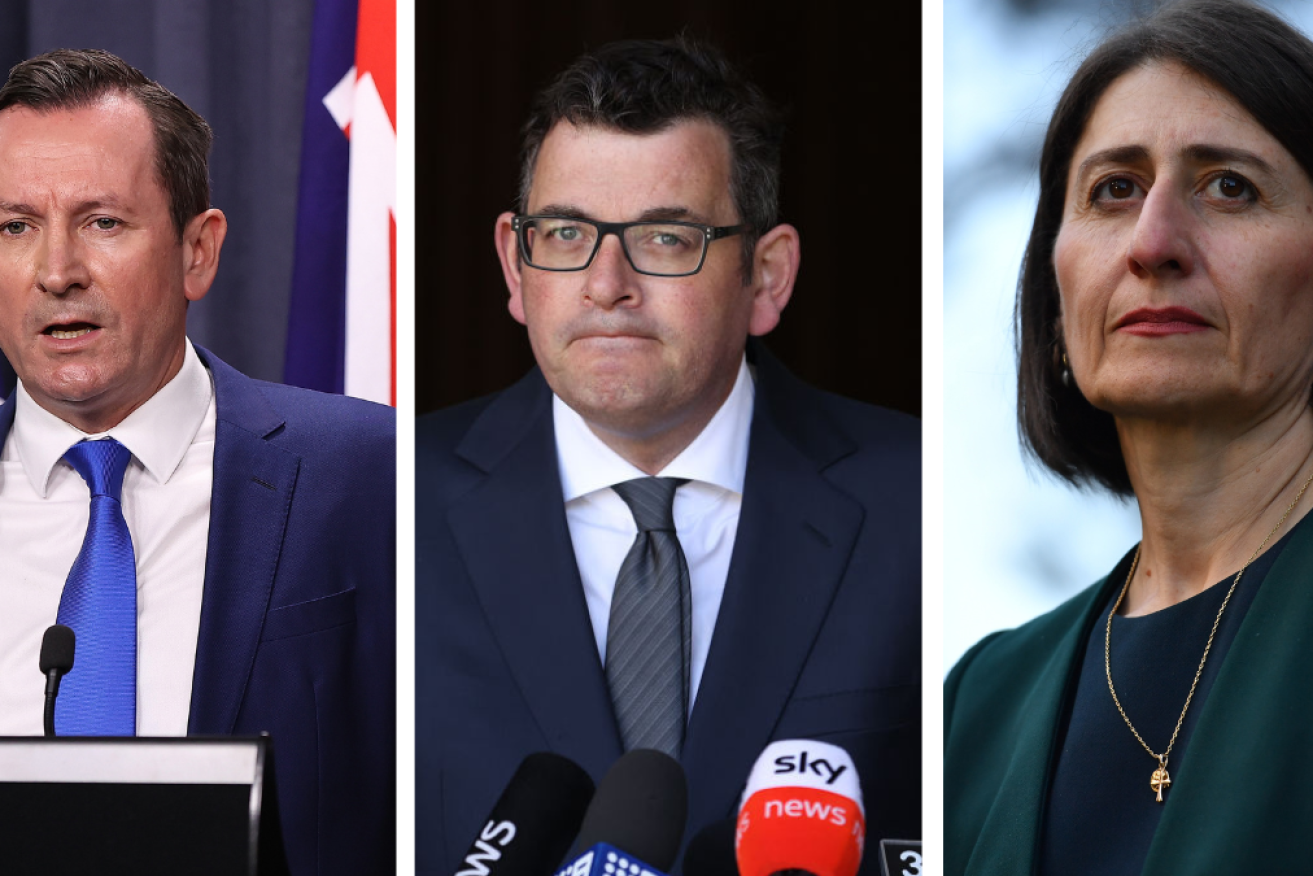Madonna King: The departure of Dan Andrews is a lesson in leaving


What can we learn from the way a leader departs their post? Photo: TND/Getty
Leadership comes almost always with two exit doors.
One is the front door, where the incumbent walks out at the time of their own choosing.
The other door is a fire exit of sorts, where others decide when it’s someone else’s turn for leadership.
And that’s the case across the public and private sectors, across industries, and across both business and politics.
In the case of politics, the carpet to the fire exit is worn out more.
Dan Andrews is one of the exceptions to that, after making the decision to end his political legacy via the front door, after a tenure that saw the Labor Party steal extra seats at every election.
Few of his peers are as lucky, with departures often sticky and controversial, embroiled in party politics or a consumer revolt. Alan Joyce is the stellar example of that in business.
But in politics, and especially on the national front, the list is as long as our memories. John Howard. Paul Keating. Mark Latham. Kim Beazley. Kevin Rudd. Malcolm Turnbull. Tony Abbott. Julia Gillard. Bob Hawke.
Being shunted out the wrong door has been common in state politics too, but less so. An integrity inquiry opened the exit for Gladys Berejiklian and voters pushed Dominic Perrottet out in New South Wales. The same goes for Jay Weatherill, whose Labor Party enjoyed a 16-year reign in South Australia before his leadership ended.
Pandemic leaders gone
Like Dan Andrews, Mark McGowan in Western Australia quit at a time of his own choosing, citing exhaustion. So did Michael Gunner, the Northern Territory Chief Minister, who quit after the birth of his second child and Peter Gutwein in Tasmania cited the importance of family, in his decision to resign.
But with Andrews gone, only two pandemic-era leaders – out of nine – remain: Annastacia Palaszczuk, who became Premier of Queensland in 2015, and Andrew Barr, the Chief Minister of the ACT – a post he has held since 2014, making him the longest-serving leader in Australia.
In both those cases, their handling of COVID-19 was applauded by voters, particularly initially. Indeed, especially in Queensland, it provided a short-term popularity boost to the Premier.
But COVID is now firmly in the rear-vision mirror for many voters. In Queensland, time and perspective has also turned on the Premier who shut borders with an impressive speed.
She’s in trouble, even by the assessment of senior strategists within her own party. A tin ear, incumbency, and a voter backlash over a lack of accountability has cut a swathe through her popularity ratings.
So when is the right time to leave the big office? And how do you do that?
Few politicians – on either side – are ever confident enough to signal a successor and share their wisdom. That’s a pity; it should be incumbent on leaders to develop a succession plan.
Annastacia Palaszczuk has not, and recent strong mutterings about whether she would be shown the fire exit were dimmed when party officials, MPs and voters looked at the likely replacements.
Barr is slightly different here. The election of the Albanese government has made leadership in the ACT a bit easier, and he has a renewed enthusiasm for the big job.
Leaving a legacy
But what is perhaps consistent is that a long-term leadership legacy is rarely determined by which door our political leaders exit.
Take Julia Gillard, for example. Her stature has continued to grow the further she moves from the prime ministership and Canberra. Ironically, it might be the same with her ‘frenemy’ Kevin Rudd.
Tony Abbott and Scott Morrison, despite their time as prime minister, are unlikely to be held in as high regard as John Howard, who occupied the same office.
Leadership legacy is how you use a post to advance the lot of others – voters, consumers, shareholders, staff, and everyone else in your orbit. And that’s harder in a social media world where we see more of our leaders and perhaps tire of them sooner.
Dan Andrews’ legacy will be written over years to come, where his divisive and strong leadership over controversies ranging from COVID to infrastructure to canning the Commonwealth Games will be analysed.
But his push to make Victoria the first to legislate assisted dying and medicinal cannabis, for opening Melbourne’s first drug injecting room, and a host of other issues will also influence how he is viewed, down the track.
But whatever legacy is authored, Dan Andrews will be labelled a leader who refused, ever, to take a step back.
Even when the decision related to the door he should use to exit.








